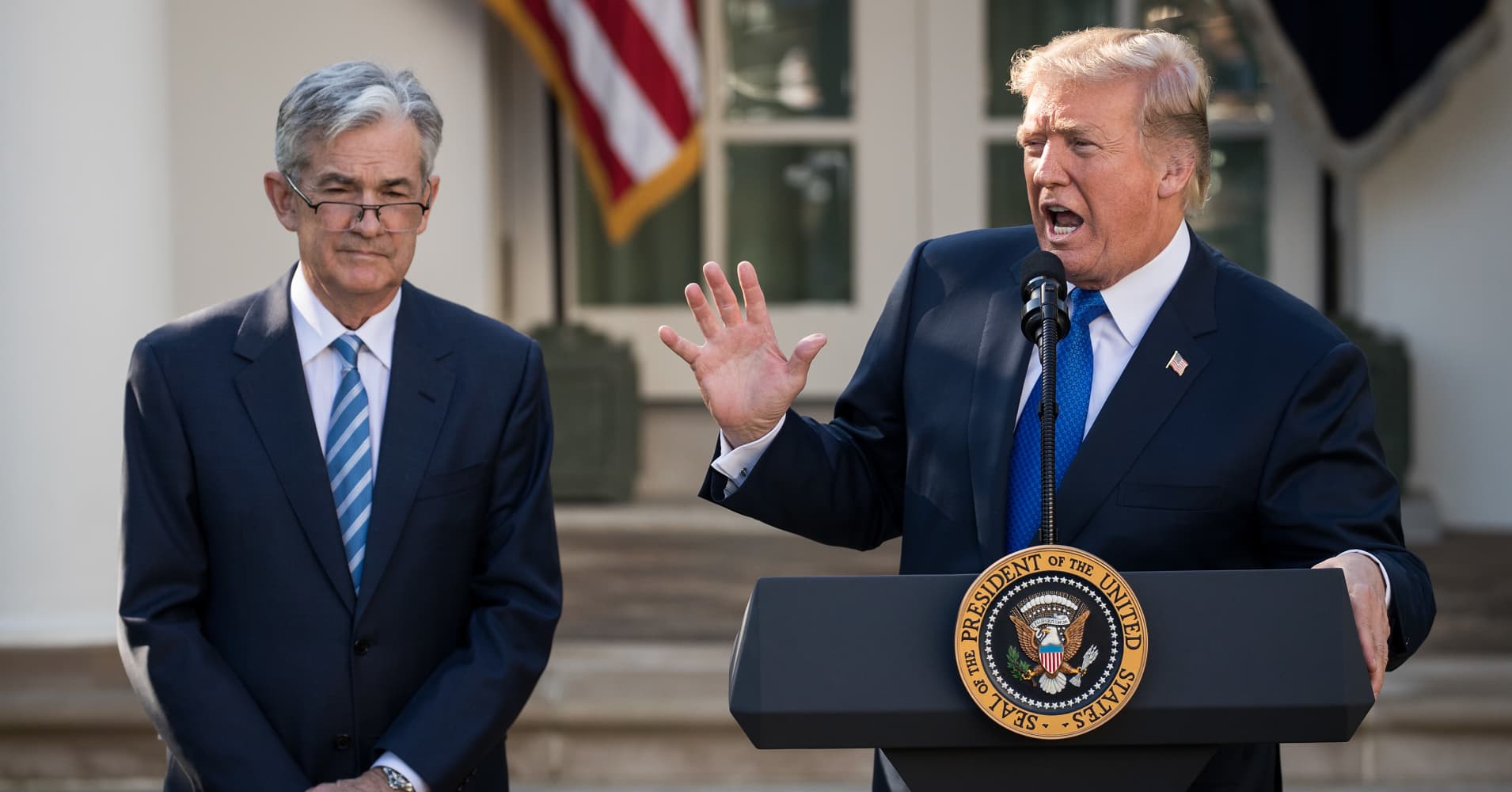
President Donald Trump has gone on the attack against the Federal Reserve, but it's highly unlikely the Fed will listen, at least one market observer says.
Last week, Trump amped up his criticism of the Fed by calling its decision to hike rates "crazy" and "out of control." Markets are pricing in another increase in December, in what would be the ninth increase of a tightening cycle that began in late 2015. Still, the fed funds rate remains near historical lows.
"Loco, crazy, fake, whatever you want to call it, I think that has zero impact on the Fed," said Michael Schumacher, head of interest rate strategy at Wells Fargo, on CNBC's "Futures Now" Thursday.
While the Fed's criticism is unlikely to deter the central bank, Schumacher said at least one thing could change members' minds.
"What could impact the Fed, though, is if you see equities take another downturn from here," he explained. The fear of higher rates has shaken investors, who sent blue chip and technology shares on a wild, volatile ride last week.
"Stocks are really not down very much. Dropping 3 percent in a day, yes it's a big deal, [but] is that really going to steer the Fed? No," Schumacher said. "But if they were down 10 to 15 percent in a week, maybe that could."
The S&P 500 has not dropped by more than 10 percent in one week since it plummeted 18 percent in October 2008, and a 6 percent decline in March was its biggest weekly drop this year. Even last week, one of the most whipsaw of 2018, ended with just a 4.1 percent fall.
Stock market pressure would likely continue as rising yields continue to spook investors, Schumacher said.
"The combination of tariffs, more debt issuance by the Treasury, and general concern on the inflation front, I suspect is getting people a little bit more worried about prospects down the road," the analyst said. "I suspect that's why corporate America is more concerned now than it was a few months ago."
Higher rates make debt for highly-leveraged companies more expensive. Last week, the 10-year yield spiking to its highest level since 2011 sent stock markets sharply lower on Wednesday and Thursday.
Schumacher anticipates a modest increase in the 10-year yield to 3.35 percent by year's end, but he notes that a few market factors could increase his forecast.
"You could imagine a number of scenarios where that gets more severe – if you do get a burst in inflation, if you get lots more Treasury issuance or something really gets derailed, could they get to 3.60 percent, 3.70 percent? It's possibly, we think unlikely, but it could happen," he said.
The 10-year yield last traded above 3.60 percent in February 2011.
via IFTTT
No comments:
Post a Comment